Will Fat Gripz Give Women Huge Forearms?

Very few women use Fat Gripz, and I’m supposing this is because they think this device will give them big forearms.
I want big forearm muscles and have not been able to get them using Fat Gripz.
Maybe I’m not using this device often enough, but you need not use Fat Gripz often if you simply want to increase your grip strength.
Why Fat Gripz Will Not Make a Woman’s Forearms Huge
The muscles that control your hand grip are in the forearm.
These are small thin muscles. Do you realize just how difficult it is to make naturally small thin muscles big?
This is why many men struggle to blow up their forearms.
I have a very strong grip. I never use gloves or straps for pulling exercises, and can deadlift 215 with either an overhand grip or an underhand grip.
I put Fat Gripz on a 135 pound barbell that’s racked on the lower pegs of a bench press station.
I stand over the bar, then grasp the blue devices and lift the bar off the pegs and hold for several seconds. NO mixed grip.
I alternate between an overhand and underhand grip for several sets.
This is exceedingly difficult for a woman to do. I’m sure that most men pulled off the street wouldn’t be able to lift 135 pounds this way even a millimeter off the pegs.
However, this exercise has done nothing for forearm hypertrophy.
Maybe if I add Fat Gripz to my rows I’ll start seeing forearm hypertrophy, but I doubt these muscles will ever develop Popeye proportions.
Women should incorporate Fat Gripz into their regimen to increase their grip strength.
These devices are advertised as a means to make one’s forearms big.
But I seriously doubt that a woman has to worry about getting huge unsightly forearms from this ingenious tool.
 Lorra Garrick has been covering medical, fitness and cybersecurity topics for many years, having written thousands of articles for print magazines and websites, including as a ghostwriter. She’s also a former ACE-certified personal trainer.
Lorra Garrick has been covering medical, fitness and cybersecurity topics for many years, having written thousands of articles for print magazines and websites, including as a ghostwriter. She’s also a former ACE-certified personal trainer.
Is It Worth It to Start Lifting Weights at Age 45?

Ask a person who didn’t begin training with weights till age 55 if 45 is too old to begin lifting weights.
If you’re around 45 and have never before strength trained, you still have SO MUCH to gain from picking up barbells and dumbbells! (more…)
How to Check the Moles You Can’t See on Your Back
If you struggle to get a good look at all the moles on your back when you do your skin cancer self-exams, there’s a solution to this problem. (more…)
Why Don’t Women Who Carry Toddlers Have One Huge Arm?

Many women carry their toddlers and preschoolers around, usually only with their dominant arm, yet that arm isn’t big with muscles, even though a child of two to three years may weigh 28 to 35 pounds. (more…)
You Know Your Treadmill Workouts Aren’t Working When…
The treadmill is a great piece of equipment for weight loss and gaining fitness, yet why for some people don’t they see ANY results?
Well, just because exercise equipment can work wonders for weight loss and fitness doesn’t mean that its user is using it correctly. (more…)
Which Burns More Fat: Rock Wall Climbing or Yoga?
Between rock wall climbing and yoga, which burns more fat depends on the skill level of the person. (more…)
Why Senior People Should Bench Press & Leg Press: Brain Health

Senior age or elderly people should get into bench pressing and leg pressing to help preserve brain health.
Many people of senior age worry about developing problems with memory or other cognitive tasks.
It’s never too late to improve mental function by developing stronger muscles.
Brain Health Linked to Muscle Strength
A very interesting study shows that greater muscle strength is associated with better brain function in senior age men and women.
For the study, the strength of 338 men and women (mean age 66) was measured.
• Grip strength
• Leg press
• Leg extension
• Leg curl
• Chest press
• Seated row
In this study, led by Heikki Pentikäinen and published in European Geriatric Medicine, hand-grip strength alone was not enough to be correlated to better brain health.
But when summation scores for the other strength training moves were factored in, the association became quite clear.
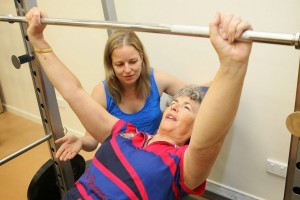
No Gain, No Brain
People of elderly age who don’t lift weights should start lifting to improve their brain health.
Very few senior age people, even men, are seen bench pressing at gyms.
“As long as you have a spotter, a bench press can be beneficial to senior citizens,” says Monica Charlton, a senior exercise specialist and certified Silver Sneakers/personal trainer out of New Orleans.
“By being on your back without the weight and pressure on the knees and joints, seniors can start at a lower weight, or even just the bar, to help build muscles in the chest and work the heart.
“To begin, you may even want to use dumbbells, as this can help get the same results, but with less strain on the body.”
The seated chest press as well while lying on one’s back will also train the chest, shoulders and deltoids.”
The leg press is another superb exercise for elderly men and women. Nearly can perform this exercise.

Shutterstock/wavebreakmedia
“Seniors who build muscles in their legs can produce lean muscle mass and lower blood pressure,” says Charlton.
“The good thing about the leg press for seniors is that there is no balance or coordination required.
“Although you don’t need to use your balance on the machine, it will still help improve your overall balance and strength by working your lower body in the pushing motion.
“Start out at a lower weight to reduce the chances of any injury, and then gradually go to a higher weight, as long as you don’t feel any straining.”
The bench press (or similar) and leg press will not only strengthen muscles, bones and joints, but will enhance brain health in older people.
Here’s a great question: Have you ever seen an advanced-age person with muscles who gets confused easily and forgets what he was talking about just minutes earlier?
 Monica Charlton’s personal training services include fitness/body composition assessments, nutrition planning, running programs and customized programs for clients with disabilities or injuries, as well as older and mainstream clients.
Monica Charlton’s personal training services include fitness/body composition assessments, nutrition planning, running programs and customized programs for clients with disabilities or injuries, as well as older and mainstream clients.
 Lorra Garrick is a former personal trainer certified through the American Council on Exercise. At Bally Total Fitness she trained women and men of all ages for fat loss, muscle building, fitness and improved health.
Lorra Garrick is a former personal trainer certified through the American Council on Exercise. At Bally Total Fitness she trained women and men of all ages for fat loss, muscle building, fitness and improved health.
.
Top image: Freepik.com.
Source: sciencedaily.com/releases/2017/06/170626093546.htm
Top Causes of Death for Severed Spinal Cord Patients
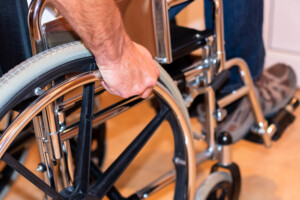
A severed spinal cord means so much more than just paralysis; it often leads to fatal conditions whose frequency is in proportion to the degree of paralysis.
You may already know that spinal cord injury patients are at high risk for constipation and other GI tract issues, pressure ulcers, sexual dysfunction and chronic pain.
These situations can make life difficult, but are not deadly in and of themselves.
Most Common Causes of Spinal Cord Injury
• Motor vehicle accident (46 percent)
• Fall (22 percent)
• Violence (16 percent)
• Sport (12 percent)
Systemic (throughout the body) complications of severed spinal cords include pneumonia, which can be fatal.
Pressure sores can lead to systemic – and deadly – infections.
But the most common cause of death in people with severed spinal cords and even non-severed-type spinal injuries is cardiovascular disease.
The severity of cardiovascular disease is directly proportional to the degree of the injury.
It’s easy to understand why cardiovascular problems are the top cause of death in those with spinal cord damage; a life of physical inertia is so harmful to the body.
Physical inertia is so detrimental that even in perfectly mobile people, daily excessive sitting can lead to cardiovascular disease, blood clots, insomnia and raises the risk of type II diabetes, stroke and some cancers.
Blood Clots Can Lead to Death
Another leading cause of death in people with severed or injured spinal cords is the deep vein thrombosis (DVT), a blood clot in a vein.
A DVT itself can’t kill a person, but the issue is that a part or all of it can break off and migrate in seconds to the lungs, where it becomes a pulmonary embolism.
A pulmonary embolism, if large enough, will create a complete barrier to incoming oxygen, cutting off the person’s oxygen supply. Death can occur in a few minutes.
“One of the main risk factors for DVT is immobility,” says Steve Elias, MD, FACS, a vein specialist with Englewood Health in NJ.
“If patients with spinal cord injury can’t move their legs, then the calf muscles can’t pump the blood back to the heart efficiently — and blood clots can develop.
“Immobile patients need to have DVT prophylaxis such as pump devices on their legs and blood thinners if possible.”
Urinary Tract Infection Can Spread
Lastly, a urinary tract infection can become systemic and thus be lethal to the spinal cord injury patient.
Source: Current Neurology and Neuroscience Reports, 2017; 17 (2) DOI: 10.1007/s11910-017-0715-4
 Dr. Elias is a leading name in venous disease, minimally invasive vein disease therapy and clinical vein and wound research. Dr. Elias lectures about all aspects of venous disease nationally and internationally.
Dr. Elias is a leading name in venous disease, minimally invasive vein disease therapy and clinical vein and wound research. Dr. Elias lectures about all aspects of venous disease nationally and internationally.
 Lorra Garrick has been covering medical, fitness and cybersecurity topics for many years, having written thousands of articles for print magazines and websites, including as a ghostwriter. She’s also a former ACE-certified personal trainer.
Lorra Garrick has been covering medical, fitness and cybersecurity topics for many years, having written thousands of articles for print magazines and websites, including as a ghostwriter. She’s also a former ACE-certified personal trainer.
.
Top image: Shutterstock/Gustavo MS_Photography
Just How Dangerous Is Obesity in Children Anyways?

Obesity in children is dangerous, period. But just how dangerous?
Kids, quite simply, should never be fat. Body positivity will NOT subdue the harmful effects of overweight. Never.
Instead of preaching body positivity to your obese child (or what you might refer to as “pleasingly plump”), you might want to consider encouraging (not shaming) your child to embrace physical activity, structured exercise and sports participation.
You should not be okay with your child being overweight any more than you’d be okay with him or her smoking.
Though smoking is illegal in minors, and obesity is not — that’s not the point, is it?
The Dangers of Obesity in Children

“Infants and toddlers naturally have a cute, pudgy appearance that tends to resolve as they grow,” begins Dr. Lisa Lewis, MD, a board certified pediatrician in Fort Worth, Texas, and author of “Feed the Baby Hummus, Pediatrician-Backed Secrets from Cultures Around the World.”
“Health care providers are able to calculate a BMI which will detect if a child, at any age, is overweight.”
BMI is body mass index, and for kids, it’s a very good indicator of the presence of excess body fat.
In adults who have a lot of muscle, BMI is less accurate at indicating high levels of body fat.
“Children in the obese range are at risk of serious illness as they grow,” continues Dr. Lewis.
“Unfortunately, obese children are commonly discriminated against by their peers. Fat shaming is taboo in our society, but still exists on many levels in our society.
“Obese children are more likely to get an injury, type 2 diabetes, hypertension and suffer from depression.
“Research shows that obese children are more likely to be obese adults.
“Obesity moving into adulthood increases the risk of heart disease, hypertension, type 2 diabetes, cancer and numerous other diseases.”
Fat Kids Climbing “the Rope” in Gym Class While Thin Kids Watch
This is the stuff of movies and TV shows.
In real life, moms should think less about encouraging their chubby young daughters to flaunt a bikini, and more about taking her on hikes and encouraging, for instance, inline skating or martial arts.
What can medical professionals do?
The U.S. Preventive Services Task Force is recommending that medical professionals screen for childhood obesity in patients six and over.
The USPSTF also recommends that clinicians refer such patients to behavioral intervention programs for weight loss.
Obese Children in America
• About 17 percent of kids two to 19 are obese as of 2017; but the percentage is rising.
• About 32 percent are overweight though not clinically obese. Again, as years go by, the percentage rises.
• However, those who are not obese but are overweight should be considered at high risk of transitioning to the obese level.
Very overweight children are at high risk for:
• Mental health issues (which are not caused by “fatphobia”)
• Obstructive sleep apnea (which can cause ADHD-mimicking symptoms)
• Asthma
• Orthopedic problems
• Poor cholesterol profile
• High blood pressure
• Type 2 diabetes or prediabetes
• Social exclusion or bullying
That’s a pretty ominous list. Even if, in rare cases, teaching body positivity somehow circumvents social exclusion, bullying and mental health issues, it will have no effect on warding off the physical dangers of obesity.
The USPSTF recommends using body mass index (BMI) as a detection tool, since some parents may underestimate just how overweight their child is.
The full report is in a June 2017 issue of JAMA.
Message for Parents of Overweight Child: Look to the Future
The vast majority of morbidly obese adults were obese or moderately overweight during childhood.
Never assume that your child will “outgrow” obesity via natural biological processes.
The dynamic that’s led to the excess body fat needs to be changed.
This begins with clearing the cupboards, pantry and refrigerator of useless junk food and replacing with healthful food, and keeping plenty of fruit on hand for snacks.
“But Mom I’m hungry!”
Bare in mind that if your child is not hungry enough for an apple or peach, then they’re not hungry enough for a donut or ice cream bar.
- Instead of buying your pudgy young daughter another bikini for the next body positivity lesson, buy her a basketball or a badminton raquet and birdie.
Having 25+ years’ experience, Dr. Lewis completed her pediatrics residency at Texas A&M University Health Science Center, Scott and White Memorial Hospital. For two years afterward she was assistant professor in the department of pediatrics at Texas A&M University Health Science Center.
 Lorra Garrick has been covering medical, fitness and cybersecurity topics for many years, having written thousands of articles for print magazines and websites, including as a ghostwriter. She’s also a former ACE-certified personal trainer.
Lorra Garrick has been covering medical, fitness and cybersecurity topics for many years, having written thousands of articles for print magazines and websites, including as a ghostwriter. She’s also a former ACE-certified personal trainer.
.
Top image: שפרעברג, CreativeCommons
Source: sciencedaily.com/releases/2017/06/170620114159.htm
Is Ensure a Health Drink or Liquid Candy? CAN It Be Healthy?

There are certain circumstances in which a person’s body needs Ensure, and other times when it should be considered junk food.
“When I used to work at a Veteran’s hospital, some patients would be prescribed Ensure for their needs,” says Amanda A. Kostro Miller, RD, LDN, whose specialties are nutrition counseling, weight loss and medical nutrition therapy.
“Nutritional drinks like Ensure are usually recommended for people who are clinically malnourished.
“These types of people have experienced unintentional weight loss, have a hypermetabolic disease, have difficulty eating solid foods or do not eat enough calories to sustain their needs.
“In cases of malnutrition, Ensure shakes (and those like it) can be essential to achieve better health. Malnutrition is diagnosed by a registered dietitian and/or doctor.
“For the general population, Ensure shakes are generally not needed, because it’s best to get your nutrition from foods that have lean protein, fiber, vitamins and minerals,” in their natural state.
“If you’re an overall healthy person consuming an overall healthy diet, think of Ensure as a dessert.” It’s no healthier than a slice of fudge cake.
Ensure As a Meal Replacement for Non-Malnourished People
Kostro Miller explains, “If people are looking for meal replacement shakes, like those for weight loss, there are plenty of meal replacement shakes on the market.
“Meal replacement shakes tend to be lower in calories, higher in protein and have less sugar than Ensure (depends on the brand).”
When Ensure Can Be a Lifesaver
If you’re 99 pounds, 88 years old and won’t eat anything but Ensure, this liquid candy will help keep you alive.

Shutterstock/Creative Family
But other than that, Ensure is essentially a sugary concoction made in a manufacturing plant, as far removed from nature as a processed food can be.
Ensure is made by Abbott Laboratories. The Abbott site for Ensure lists sugar as a “core ingredient,” and it states:
Sugar: Another carbohydrate source for additional energy.
That’s how they sugarcoat (no pun intended) the reality that Ensure is liquid candy.
Its top ingredients as far as quantity include sugar and corn syrup.
When can Ensure be good for you?
When it’s one of the few things that a sick person who’s losing essential body mass will eat.
Ensure Plus contains 350 calories per bottle. If this is one of the few things that your elderly parent – who’s suffering from depression and loss of appetite – will consume, then give it to him or her to prevent dangerous weight loss.
- But it won’t do anything to lower the risk of heart disease, cancer, stroke or diabetes!
- It will not help build muscle or enhance athletic performance or brain function!
- Ensure is targeted towards active, healthy senior-age people. Fit and active older people do NOT need this liquid candy for health or energy purposes.
- But of course, it makes a great dessert or sinful mid-day snack.
Why Do Hospitals Give Ensure to Patients?
It’s an easy way to get a lot of calories quickly into a sick patient who’s in danger of losing essential body mass.
And keep in mind that hospitals also have cake, ice cream, cookies, cheeseburgers and hotdogs. Hospitals want their patients to be happy.
- Eight ounces of Ensure yield 18-23 grams of added sugar and 200 mg of sodium.
- One little eight ounce can will fulfill a significant amount of the sugar and sodium quota limits set by the American Heart Association.
Should Bodybuilders Drink Ensure?
It’s a cheap source of protein and quick-acting carbohydrates for post-workout recovery.
A muscle-building enthusiast who wants a health-giving diet will clearly see that there are better options.
Ensure should be viewed as a “cheat meal” and not as a health drink.



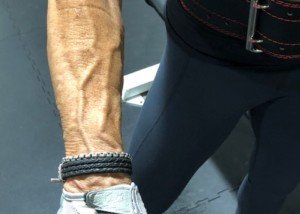





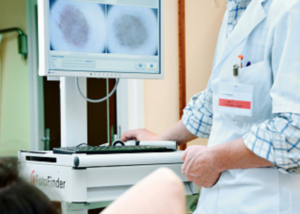
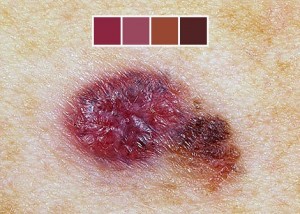


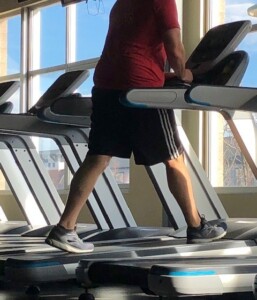

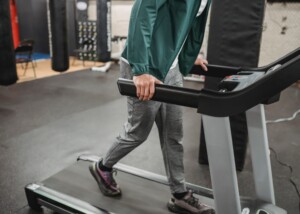








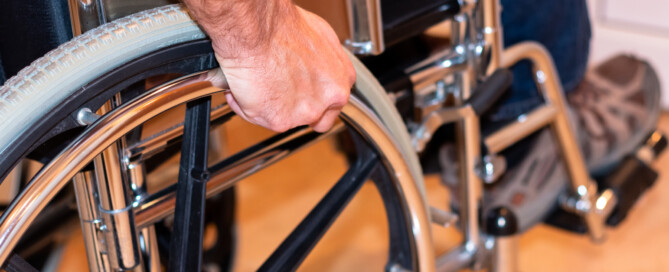
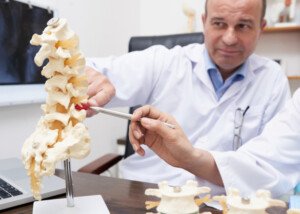
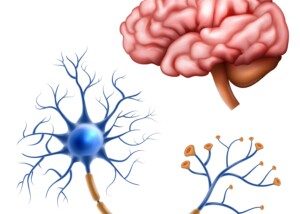





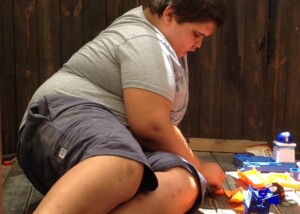
 has worked with U.S. veterans, people with eating disorders and those with various acute and chronic diseases.
has worked with U.S. veterans, people with eating disorders and those with various acute and chronic diseases. 





































